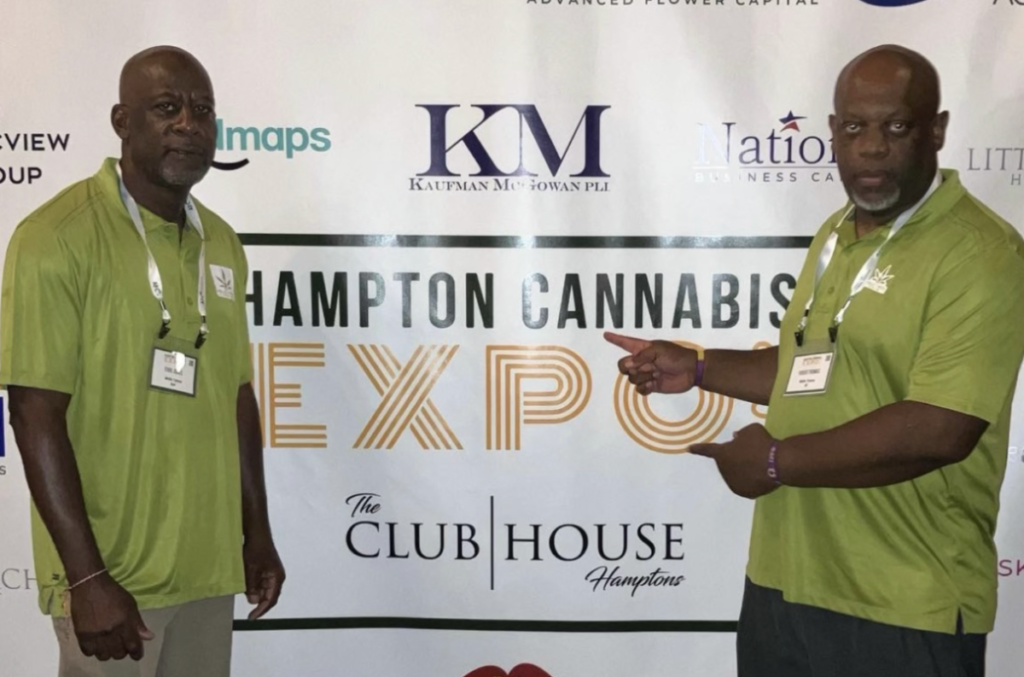
Growing up, Earl Jones Sr. was easily distracted and had trouble concentrating. Playing basketball and soccer helped, but they weren’t enough. Soon, his aunt suggested an unlikely solution: cannabis.
“I started smoking cannabis, not because I wanted to be cool or apart of the crowd, but because I wanted to feel…comfortable being in crowded spaces or around close family or friends,” Jones Sr. wrote in his application to be among the first legal distributors of cannabis in New York state.
Jones Sr. was later convicted for possession of cannabis. As a result, he lost his job as a construction worker.
“I was the sole breadwinner for my family, so their peace of mind and comfort was also put at risk,” he wrote.
Ironically, that conviction is what made Jones Sr. eligible to apply for a Conditional Adult-Use Retail Dispensaries license — one of the 903 applications received by New York State’s Office of Cannabis Management. The deadline to apply was Monday.
Jones Sr. is now the chief purchasing officer of cannabis brand and company, Mello Tymes.
CAURD licensees will be among the first legal cannabis retailers in New York. The program aims to place those hardest hit by the war on drugs at the center of the state’s burgeoning cannabis industry.
In order for a business to meet the eligibility requirements, a majority of it must be owned by a justice-involved person — meaning someone convicted of a marijuana-related offense or related to or dependent on someone convicted of such an offense. Other criteria includes qualifying business experience.
“We listened to [the OCM] and did everything they asked us to do, so our chances is good,” said Mello Tymes CEO Roger Thomas, who has known Jones Sr. for 30 years.
But Thomas wasn’t always so confident. When one of his friends and future business partners first told him about the program, he thought: “They’re not gonna let any Black folks own dispensaries in New York. That’s a long shot.”
At the friend’s urging, Thomas looked into the program, and specifically the term “social equity,” which is one of its major focuses.
“That’s when I realized we could do it,” Thomas said.
The application portal closed on Monday just before midnight. Each application required a non-refundable $2,000 fee, which will be deposited in the Cannabis Revenue Fund for administration of the program. Additionally, a percentage of the funds will go toward substance use treatment and public education in areas that opted in to cannabis sales, according to Aaron Ghitelman, the OCM’s deputy director of communications.

Britni Tantalo is another hopeful CAURD applicant.
She has been in the cannabis business with husband Jayson Tantalo since 2014. They began working on the wholesale side of the industry, selling equipment to retail hydroponic stores and smoke shops. But before that, she and Jayson had both been “victims of the war on drugs.”
Tantalo grew up in the rural Livingston County, where she was convicted of possession of cannabis at 17. The conviction was “a scarlet letter on my back,” she said.
For years, the couple kept an eye on the legalization efforts that had been underway in other states. They incorporated the Flower City Dispensary in Rochester in 2020 in anticipation of operating once cannabis became legal in New York.
Tantalo believes that her chances of receiving a CAURD license are high. “We check all of [the] boxes. From social equity to holding cannabis convictions to being a minority woman-owned business and having a profitable business for greater than two years,” she said.
There are 150 available spots in the program. “Pure odds would say applicants have a 1-in-6 chance of getting a license/store,” tweeted Kaelan Castetter, managing director of the Castetter Cannabis Group, before the official number was released on Wednesday.
The CAURD application portal opened on August 25th. Eli Northrup, policy counsel for The Bronx Defenders, thinks it was a rushed process. “I think that comes from this desire to have people selling by the end of the year, which seems like an arbitrary deadline,” he said.
If an applicant fails to meet the program’s eligibility requirements or is not selected for the program, there may be other opportunities for them to apply for a cannabis license in the future. Both Tantalo and Thomas expressed plans to apply again if their CAURD applications are not selected, although each is optimistic.
“It would mean a lot. Not just to us, but to other people who are like us… It would be some kind of hope,” said Thomas.
